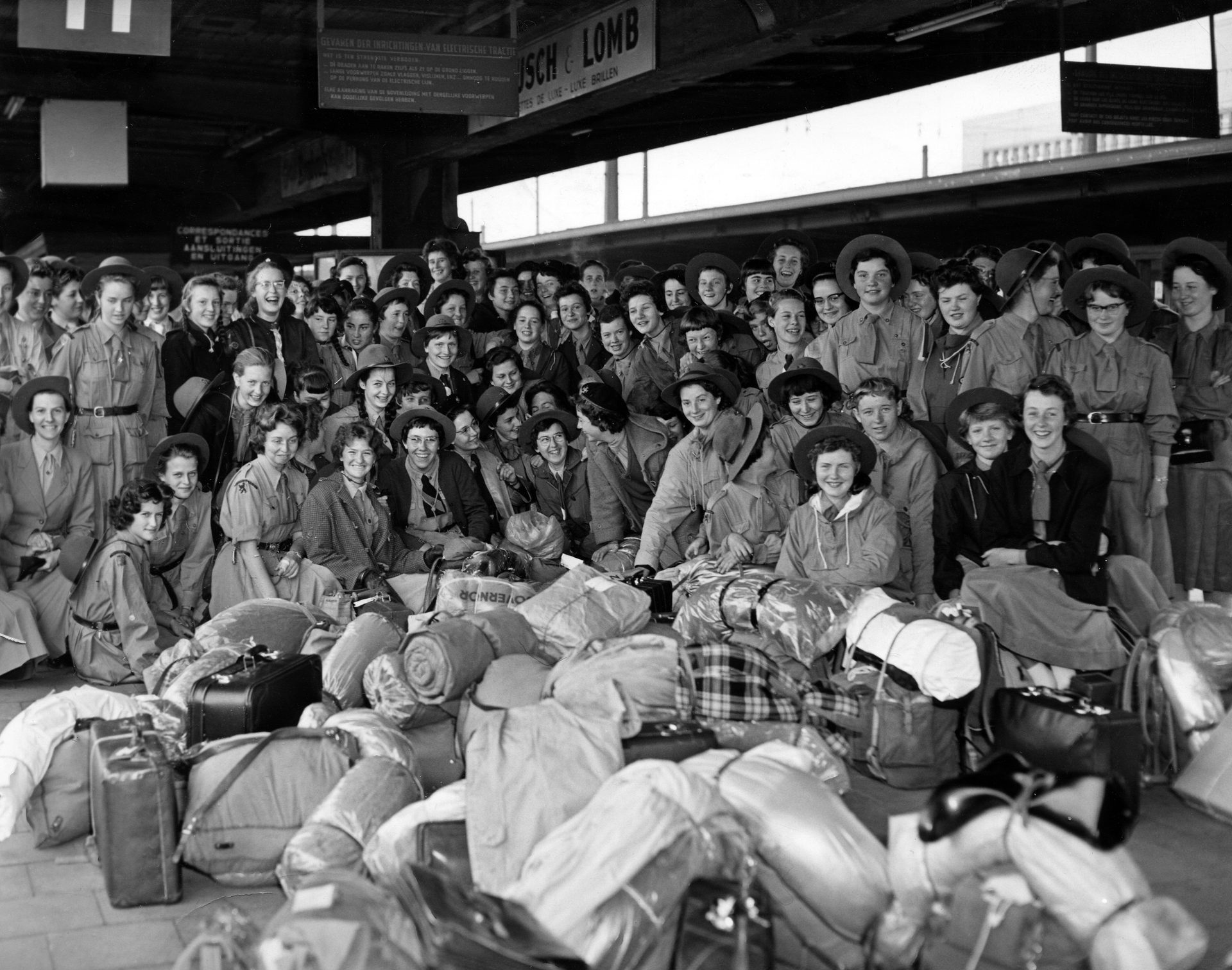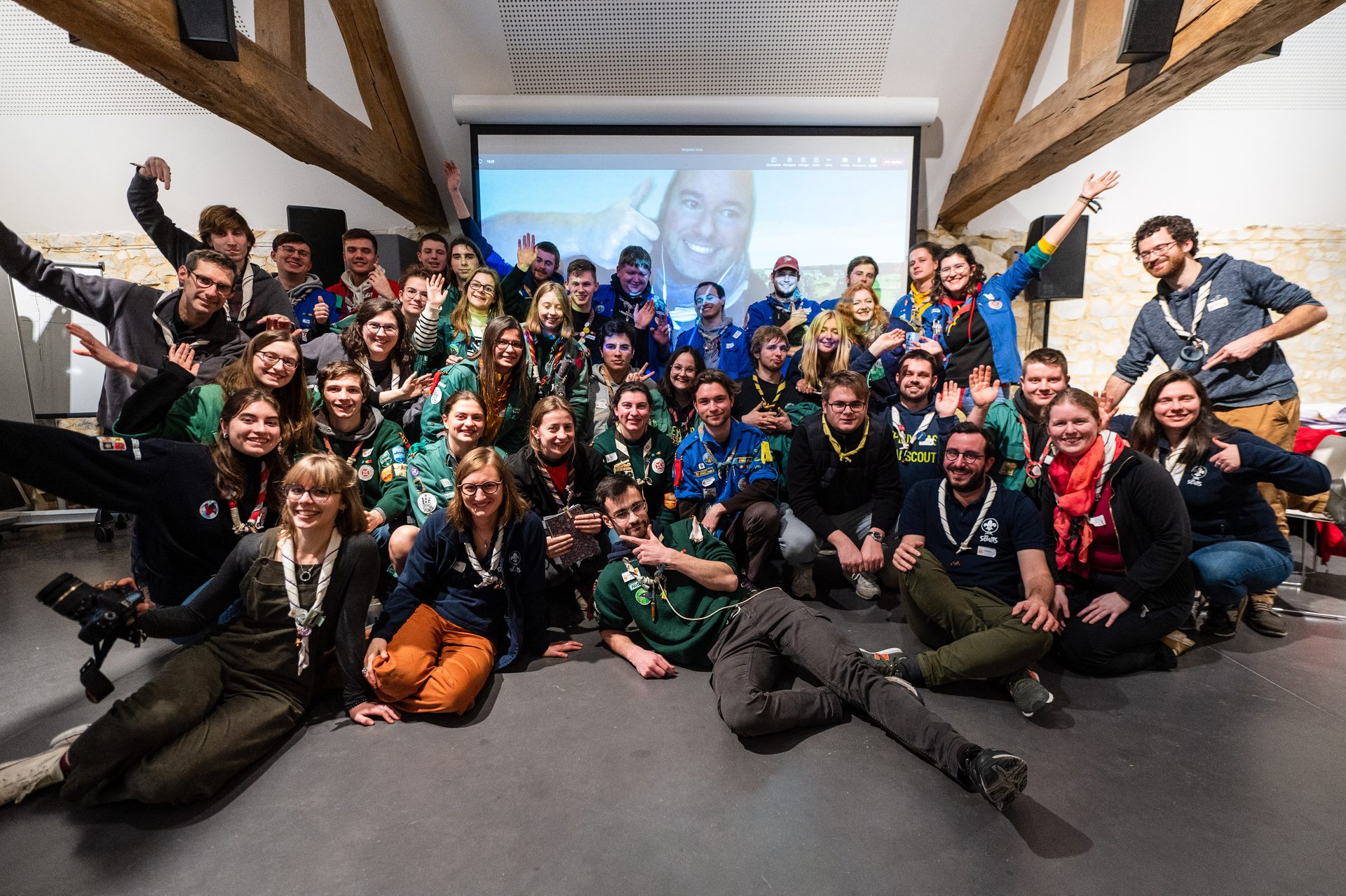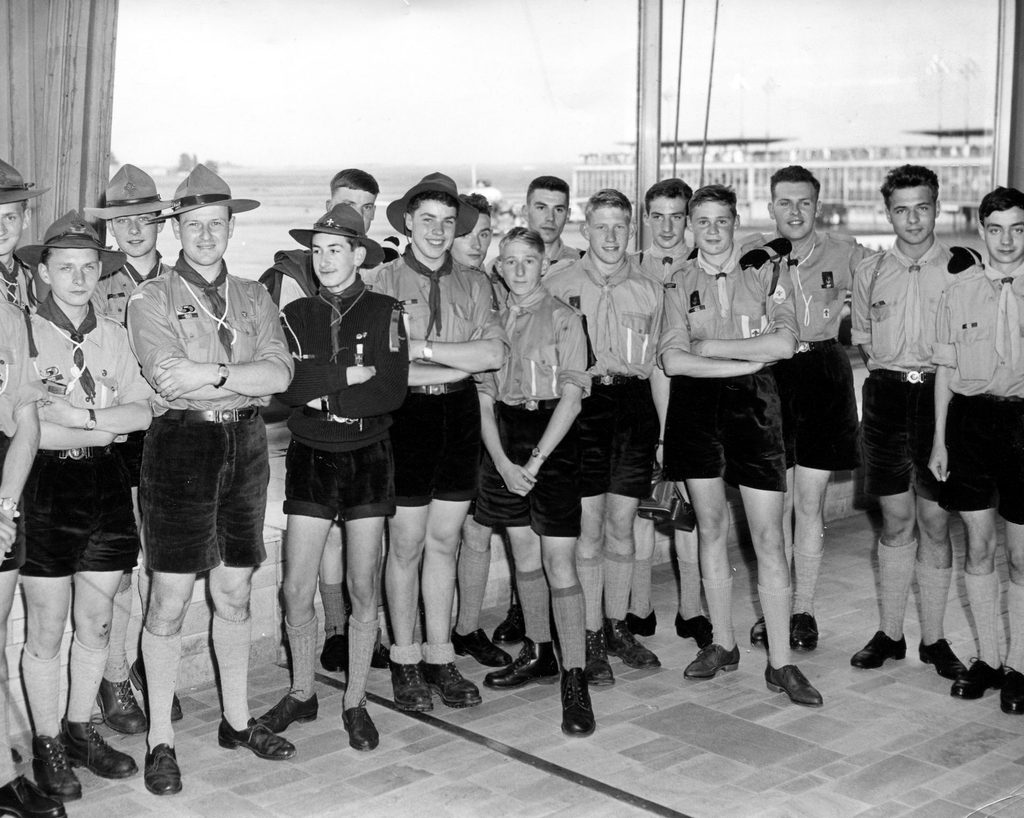Founded 116 years ago, the tradition of scouting in Belgium is well established and has survived two world wars and the German occupation. The popularity of the youth activity shows no sign of fading.
Created by British Army Lieutenant Robert Baden-Powell in 1907, the movement was designed to give children an appreciation of the outdoors, a moral education, and teach self-resilience in young boys and men.
After Baden-Powell published the famous “Scouting for Boys” handbook – a guide to woodcraft, self-discipline, and self-improvement – the first “Scout Patrols” began in 1909, bringing together 11,000 scouts and a small contingent of newly formed “Girl Scouts” at London’s Crystal Palace.
A year later, the official Boy Scouts Association, and later The Girl Guides, was established. At its foundation, the Boy Scouts Association boasted an impressive 100,000 members. Though religious at first, the organisation is now largely non-denominational.
It quickly spread across the British Empire and there are now believed to be 50 million members of the World Organisation of the Scout Movement.
Éclaireurs and Belgian scouts
In Belgium, boy and girl scouts can be recognised by their blue or green uniforms, neckties, badges, and armbands. They are seen across the country taking part in excursions, hikes, and other outdoor activities.
The first scout troop was founded by Englishman Harold Parfitt in 1910 in Brussels. It was designed for young British people living in the city and soon spread to the British community of Antwerp. When Belgians saw the British scouts they, too, were inspired to create their own movement.
“The first troop was set up in Belgium and was followed by a whole series of other groups, particularly following a visit from Baden-Powell,” a spokesperson from 'Guiding and Scouting in Belgium' told The Brussels Times.
The first of these groups was the francophone Boy-Scout of Belgium, founded in 1910. This was followed by the Belgian Catholic Scouts (1912), and the Baden-Powell Belgian Girl-Scout. The foundation of the scouts in Belgium is commemorated in Brussels’ iconic Bois de la Cambre.
A national federation to bring French and Dutch -speaking scouts under one banner was initially male-only. This was superceded by a pluralist federation that exists to this day.

Credit: Belga archives
Beyond religion
The scouting movement in Belgium initially met with significant opposition from the public, who denounced the group for reported ties to Freemasonry. Catholic scouting grow significantly as a result. Then-prince Baudouin (King from 1951–1993) was fervently religious throughout his life and grew up in the Belgian Catholic scouting movement.
This religious divide still exists but not all scout troops have the same policy towards religion and spirituality. “Certain groups chose Islam, others chose Catholicism. The common theme is spirituality, without no links to either religion set in stone. For the last 15 years, the emphasis has not been on religion but spirituality, allowing everyone to find their way in life,” the spokesperson explained.
In the build-up to the second world war, the Belgian scouting movement fractured along linguistic and religious lines. At the end of the 1920s, the Catholic scouts split into two autonomous linguistic wings in a bid to promote the movement across Belgium. In the 1930s, both the secular and religious scouting movements saw a large increase in members among boys and girls.
In 1966 the language divide was formalised with the creation of French-speaking Fédération des Éclaireurs and Éclaireuses and the Dutch-speaking Catholic scouts Federatie voor Open Scoutisme. Nowadays, the movement is largely divided linguistically and religiously, but there is sometimes an overlap.
“There are some groups affiliated with the French-speaking Federation that are based in Dutch-speaking territory, for instance in Antwerp. They work in French, but the children are bilingual… In Leuven there’s a Dutch-affiliated group but it only speaks French,” the scouts official said.
Scouting under German occupation
Even in wartime, Belgian scouting persisted. With the invasion of Belgium in 1940, the movement scattered but remained steadfast in its commitment to continuing moral and practical education for boys and girls.
“Scout leaders withdrew to the south of France but continued in Toulouse to supervise 25,00 Belgians aged 16-19. Their mission diverted young people from idleness, indiscipline, and boredom,” La Toile Scoute, a French-speaking scouting community notes.
Many of those who did not escape the country, joined the Belgian resistance. Others formed camps to support mentally disabled children and children of prisoners, as well as providing disaster relief.
The Belgian Scouting Movement refused to merge into the Hitler Youth and instead quietly continued its activities. The offices of the Federation of Catholic Scouts were raided and sealed off by the German Gestapo. In 1942, scouts were banned from camping in tents. In response, they camped in huts made from branches. From 1943, scouts were banned from wearing traditional uniforms and patches.
Some scouts performed acts of resistance, taking in Jewish members as children to hide them from the Nazis. The scouts helped many of its Jewish members to flee the country to England. Despite the restrictions, the scout movement grew under occupation to nearly 20,000 members at the end of the war. Another 120 scout units were also created.
Still going strong

Credit: Belga/ Maxime Asselberghs
Relative to the size of the country, the Belgian scouting movement is today one of the largest. There are more than 180,000 scouts for a population of 11 million people, according to statistics from Guiding and Scouting in Belgium. The spokesperson estimated that around 10% of all 6 to 25-year-olds are members of a scouting movement in Belgium.
Compared to other scouting movements in Europe, Guiding and Scouting in Belgium says that it places a special emphasis on activities and games, helping to bring children together through play. “Some countries put a much stronger emphasis on the community. In Belgium, playing games is key to synchronising the community.”

